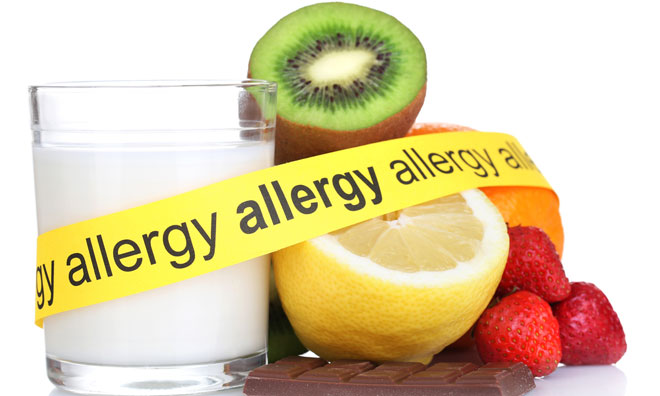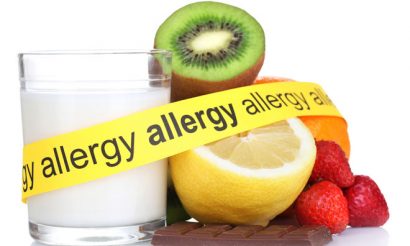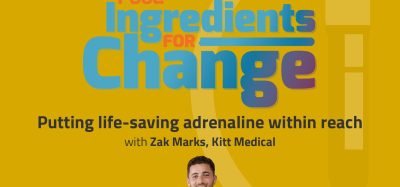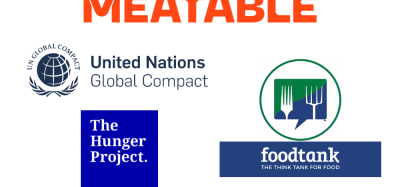A hidden nightmare: Allergies, intolerance and food safety
- Like
- Digg
- Del
- Tumblr
- VKontakte
- Buffer
- Love This
- Odnoklassniki
- Meneame
- Blogger
- Amazon
- Yahoo Mail
- Gmail
- AOL
- Newsvine
- HackerNews
- Evernote
- MySpace
- Mail.ru
- Viadeo
- Line
- Comments
- Yummly
- SMS
- Viber
- Telegram
- Subscribe
- Skype
- Facebook Messenger
- Kakao
- LiveJournal
- Yammer
- Edgar
- Fintel
- Mix
- Instapaper
- Copy Link
Posted: 17 November 2016 | Rene Duchesne, Food Safety Manager, Cavalier Candies Ltd. | 1 comment
We ask Food Safety Manager Rene Duchesne to discuss the importance of precautionary measures in product manufacturing when working with allergens…


By definition food allergies are sensitivities caused by a reaction of the body’s immune system to specific proteins in a food.


According to a recent publication, approximately 7% of Canadians self-report a food allergy. However, fewer are likely to have a physician-diagnosed food allergy, which are estimated at prevalence levels up to 5-6% for young children and 3-4% for adults in westernised countries.
In allergic individuals, a food protein is mistakenly identified by the immune system as being harmful. The first time the individual is exposed to such a protein, the body’s immune system responds by creating antibodies called immunoglobulin E (IgE).
“Approximately 7% of Canadians self-report a food allergy…”
When the individual is exposed again to the same food protein, IgE antibodies and chemicals such as histamine are released. This is the textbook explanation of the condition. In some cases, individuals can in fact face a life or death situation if they eat something which will cause their body to react in a rather violent manner. This reaction can cause the airways to constrict causing the person to literally suffocate. If you’ve ever witnessed such an unfortunate event, you will remember it for a very long time. The antidote or commonly know device called an EpiPen is an injection containing epinephrine, a chemical that narrows blood vessels and opens airways in the lungs. This injection, generally given in the thigh area, is a life saving device to counteract an allergic reaction. It, as many other things in life, is not a guaranteed life saver although in most cases, it will indeed make a huge difference in the life of an allergy sufferer.
Food intolerance or food insensitivity is another affliction similar to an allergy, although it mostly causes illness in the way that does not involve the individual’s immune system. Unlike food allergies, or chemical sensitivities, where a small amount of food can cause a reaction, it generally takes a more normal-sized portion to produce symptoms of food intolerance. While the symptoms of food intolerance vary and can be mistaken for those of a food allergy, food intolerances are more likely to originate in the gastrointestinal system and are usually caused by an inability to digest or absorb certain foods, or components of those foods.


The adverse effects of food sensitivity can be severe abdominal cramping leading to several trips to the washroom. This may last for a while and the individual may truly believe they have been subjected to food poisoning. Unlike an allergic reaction, this will not likely be a life or death situation. Eventually, as the body rids itself of the food product, the individual will slowly recover until the body feels back to normal. This condition is similar to Coeliac Disease (intolerance to gluten), where the body cannot deal with the type of food ingested, leading to an experience similar to food intolerance.
“The EpiPen, as many other things in life, is not a guaranteed life saver…”
Any person dealing with one or more of these issues can find having a meal or even a simple snack very challenging. I have witnessed most of the above and face the challenge as it were an affliction of my very own. It creates a life of uncertainty like no other. A complete lifestyle change must take place in the individual’s way of life. Cross contamination is one of the biggest challenges. This has led to many a product recall in the food manufacturing industry. Having someone in the home with allergies, intolerances, among other conditions, simply means everyone must eat the same products or completely separate meals must be prepared. Therefore, no sharing of spoons, forks, knives or other cooking utensils as this invites the risk of cross contamination.
Any person dealing with one or more of these issues can find having a meal or even a simple snack very challenging…
Even when purchasing a prepared food such as unseasoned steaks, can be risky. The product is likely to have been handled by a worker who might have previously been in contact with an item in which spices for example were used. If he then handles the steaks before packaging, this cross contaminates the steak. The residue can adversely affect an individual with sensitivity to the spices.
This knowledge also comes from personal experience…
Why these conditions exist is somewhat a medical mystery. In my opinion, a person is born with specific genes, chromosomes, and among the other characteristics which makes each of us unique to others. Something in life, this triggers changes and these anomalies subsequently change a person’s life in a sometimes dramatic fashion.
Living with these conditions is possible, using much care and consideration when buying food product, as well as preparing and cooking with care in the household. Some may not even dare to dine out for fear of situations leading to an allergic reaction.


It takes great care on the part of manufacturers to produce products which are not only food safe with respect to bacteria or pathogen control, but also in terms of the avoidance of cross-contamination with allergens. It is the only protection for an allergy sufferer. Changes in production formulations with the product label declaring it can affect the individual. This requires reading labels on many if not all products purchased.
Some labels read, “may contain traces of………..” or “produced in a facility which also produces allergens.”
Be wary of these statements as just a single serving of these products may well ruin the next several hours of your day… and that’s if you’re lucky. It is a very concerning issue to food manufacturing facilities as well as regulators.
All this doesn’t even mention the training of restaurant or fast food staff who too will need to prepare food safely when cooking with or without allergens. It’s a challenge whether you are a manufacturer or an individual who suffers with allergies and/or food intolerance.
Lastly we must also be aware that when a manufacturer changes the labelling on a product you have previously been safe to consume, it is best to call the manufacturer and confirm that the product formulation has not changed as making a new label is an indication of a possible change which might now negatively affect the allergy sufferer.
The phrase “better safe than sorry” has never rung truer than for those who unfortunately live life with food allergies and/or food intolerance.
Rene Duchesne is the Food Safety Manager with Cavalier Candies Ltd. Rene lives with a family member who has multiple allergies, food intolerance as well as Coeliac Disease and understands the impact of allergens in the household and the importance of precautionary measures needed in product manufacturing when working with allergens.
Related topics
Allergens, Contaminants, Food Safety, Proteins & alternative proteins









Great article. Being in food processing I feel industry takes great pains to insure no unidentified allergen leaves their facility. Under some occasions it does happen, but the industry catches the mistake and quickly recalls product and notifies the population. In restaurants however I feel persons with serious allergies may be playing Russian roulette. These GMPs followed in industry do not follow over to restaurants, and caterers unfortunately. I would limit my eating out with such conditions unless you are willing to stake your life on the reputation of the weakest link, the restaurant employee, stressed out, and perhaps overworked and on crazy peaks of rushed service. Most restaurants have no HACCP plan, and have never heard of one.